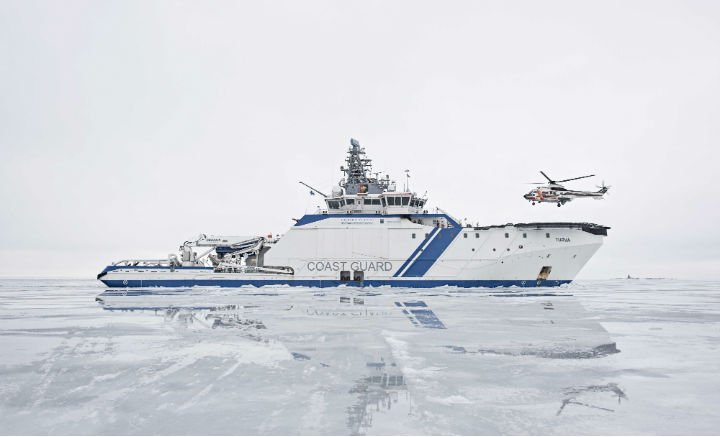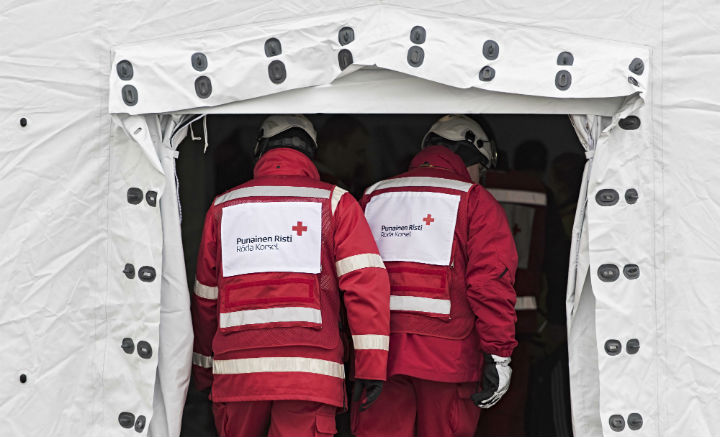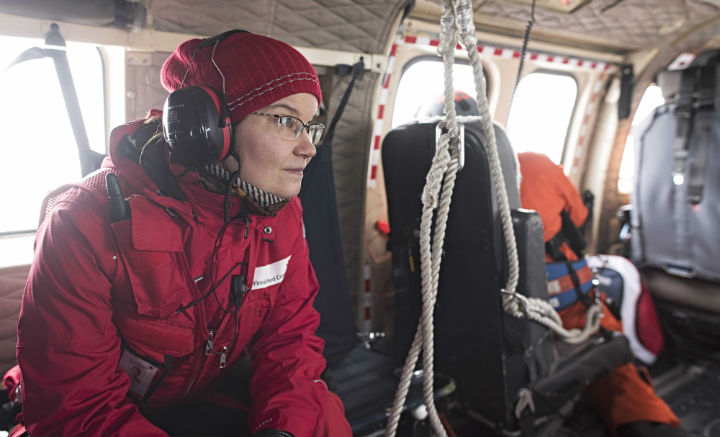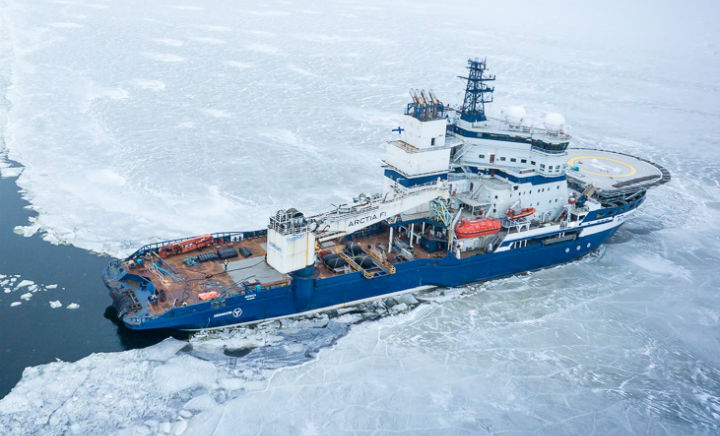Fresh focus on the Arctic

At the end of July 2017, the Finnish icebreaker MSV Nordica arrived in the port of Nuuk, Greenland. While this was nothing out of the ordinary, what Nordica achieved in the 29 days leading up to its arrival were extraordinary. The ship had made its way from the west coast of Canada through the notorious Northwestern Passage – faster and earlier in the year than anyone ever before.
Nordica’s journey is testament to how climate change is effecting the Arctic. New sea lanes are opening up in a vast area that is rich in natural resources, including oil. Tourism is booming and there is an increasing human presence in some parts of the Arctic. This activity brings with it new developmental and humanitarian challenges and risks.
Since 2000, the International Federation of Red Cross and Red Crescent Societies (IFRC) has had observer status in the Arctic Council, an intergovernmental forum promoting cooperation among the Arctic States, Arctic indigenous communities and other Arctic inhabitants on common Arctic issues. With Finland chairing the Council from 2017 until 2019, the Finnish Red Cross is currently representing the IFRC in the Council.
The Arctic Coast Guard Forum is an annual meeting that compliments the efforts of the Arctic Council, chaired by the Finnish Border Guard for the same period as Finland is chairing the Council. Over the next two years, Finnish Red Cross is working with the Finnish Border Guard on the initiative, “Developing Arctic Disaster Management Capabilities”.
The project aims to strengthen capacities for evacuation interventions during major accidents in cold conditions. This involves updating preparedness plans and training personnel, as well as practicing disaster response operations, with an emphasis on strengthening cooperation between key actors. “Finnish Red Cross will also elaborate the concept of its unique Emergency Evacuation Centre, and develop its logistics for mass casualty accidents,” says Ilona Hatakka, Finnish Red Cross Disaster Preparedness Adviser.

The second part of the project is a survey assessing the current capabilities of Red Cross and other key actors to respond to major accidents in the Arctic. It will cover National Red Cross Societies across the region: Finland, Iceland, Canada (representing the Northwest Territory, Nunavut, and Yukonia), Norway, Sweden, Denmark (representing Greenland, and the Faroe Islands), Russia, and the United States (representing Alaska). The sample will be supplemented with data from countries around the Baltic Sea, including Estonia, Latvia, Lithuania, Poland, and Germany. The study will examine current operational capacities, especially considering the ability to work in extremely cold conditions. It will also look at existing partnerships between National Red Cross Societies, and with national authorities. “A key outcome of the survey will be better understanding of our collective strengths and weaknesses in disaster response,” says Ms Hatakka. The findings and recommendations will be published in August 2018.

The Arctic will soon be free of permanent ice during the summer months as it changes dramatically with climate change, which will allow for shipping above the Eurasian and North American continents. This may bring more people to the region, increasing infrastructure, human settlements, and traffic. In the event of a disaster, an enhanced response would be needed, so “this Red Cross initiative comes out with perfect timing,” says Ms Hatakka.

The project is funded by the Cooperation Fund for the Baltic Sea, Barents and Arctic under the Finnish Ministry for Foreign Affairs.
Basic information
Activity name
Developing Arctic Disaster Management Capabilities
Country
Finland
Partners
Finnish Red Cross, Finnish Border Guard

